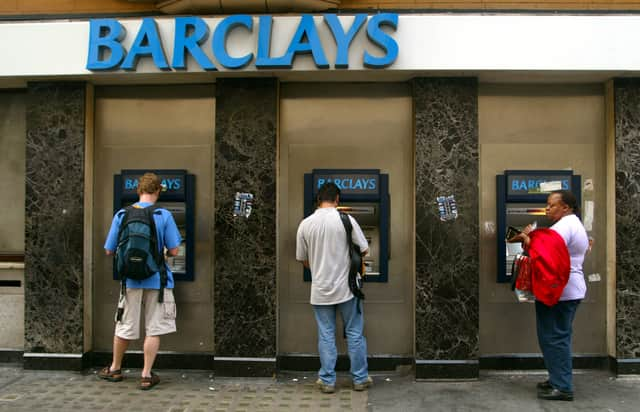Only 46% of bank transfer scam victims get money back, says Which?


Less than half of the losses of fraud victims who transfer cash to scammers’ bank accounts have been repaid under a voluntary code that banks are applying inconsistently, according to a consumer group.
Which? called for the code, introduced in 2019 to ensure the reimbursement of money lost in bank transfer scams, to be strengthened and mandatory standards to make the process “fairer and more consistent”.
Advertisement
Hide AdAdvertisement
Hide Ad£707,000 lost everyday under voluntary code
The group cited UK Finance figures which show £412.9 million has been lost in 189,000 cases of bank transfer fraud between the introduction of the code in May 2019 and the end of 2020 – amounting to £707,000 every day.
But Which? said only 46% of the money lost in that time had been returned, meaning victims had taken a £225 million hit.
Bank transfer fraud, also known as Authorised Push Payment (APP) scams, involves a scammer posing as a genuine payee.
The code was introduced in 2019, and banks involved are intended to offer more protection to customers from the scams.
Advertisement
Hide AdAdvertisement
Hide AdBanks that are part of the scheme include Barclays; HSBC, including First Direct and M&S Bank; Lloyds Banking Group, including Halifax, Bank of Scotland and Intelligent Finance; Metro Bank; NatWest, including RBS and Ulster Bank; Nationwide; Santander; Starling and The Co-operative Bank.
The code states that if a customer is not at fault they should be reimbursed but Which?, the Financial Ombudsman Service (FOS) and other consumer advocates, have found banks are incorrectly deciding not to return losses.
This includes cases where victims are subjected to advanced tactics used by fraudsters, or where banks have failed to warn customers about the threat of being scammed.
Gareth Shaw, head of money at Which?, said: “Two years on from the code’s introduction, it is clear that the Payment Systems Regulator must now take decisive action to prevent the continued devastation caused by this type of fraud.
Advertisement
Hide AdAdvertisement
Hide Ad